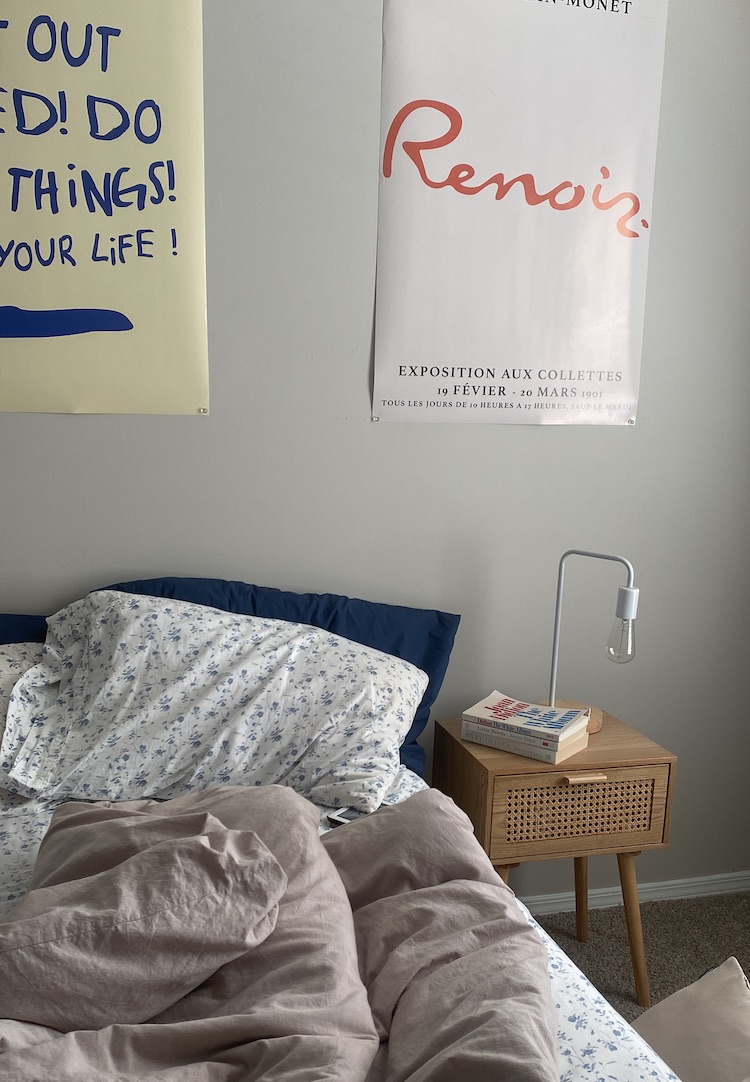Sexual aftercare can improve your sex life, here’s how
WORDS BY ALIYAH MOORE
“Sexual aftercare is about acknowledging that sex has a powerful impact on both partners even when it’s over.”
Sex can be an intense experience that impacts our bodies and minds. From the sensational experience of a knee-shaking orgasm to the disappointment of a bad lay, to the heartwarming look in a soulmate’s eyes, sex can take a toll on us.
So what comes next? Well, most of us have a slight routine already. Whether it’s with our life partner or a one-night stand, we’ll usually pee, cuddle, get a drink of water, take a shower or something similar after we have sex.
Interested to hear how others navigate the world? Head to our Life section.
We don’t pay it much mind, but aftercare is more important than you might think. It helps us rebalance our emotions, keep our bodies healthy, and nourish our mental health, even if we’re experiencing sex by ourselves or with a long-distance partner.
Bodily self-care
If sexual experts have said it once we’ve said it a million times: you need to pee after sex. You’ve probably heard this before, but it does help prevent infections and irritation. Showers are a fantastic way to wash up, relax and put your body back in neutral after sex.
If you aren’t planning on a shower, have some wet wipes in your bathroom so you and your partner can clean up any excess lube or toys. If you and your partner have the stamina for lengthy steamy sex, then you should drink some water too. Aside from hygiene and hydration, there aren’t many universal aftercare techniques for your body; what you need depends on you and your partner.
Did you pull a muscle trying a wild new move in bed? In that case, aftercare might involve stretching, trading massages with your partner or taking pain medication. Are you hungry? You might need to whip up a snack or even order delivery. Are you tired? Sometimes aftercare is little more than putting away your phone and letting yourself drift to sleep in your partner’s arms.
Those with medical conditions might be used to taking medication on a schedule, but sex can be distracting. I recommend keeping a reminder on your phone or in your bathroom just in case.
Nurturing your mind
Your mind and your feelings often go hand-in-hand, but in some cases, it’s worth making a distinction between the two. The mental aspects are the habits, issues or patterns in your mind that cause feelings.
We’ll talk about how to handle those after-sex feelings in a minute, but first, think about your own mind. Are you prone to anxiety around sex? Do you want to be closer to someone after sex, or do you need space? Are you on medications that impact your mood? Are you affected by past sexual trauma?
All of these are things you can work into your aftercare routine for yourself and your partner. Many of us have anxiety about telling our partner what we need (especially a new one), but a partner who isn’t open to your needs isn’t a partner worth having.
So tell them if you want to be held and kissed. Tell them if you need a few moments of space to look at your phone and calm your nerves. This is not an excuse to make a break for the door and send an awkward text later; rather, it’s letting your mind decompress and reset.
For those of us who deal with anxiety or past sexual trauma, aftercare can help. Knowing what comes after sex and having a routine helps you settle into a calmer state of mind.
Some people experience something called post-coital dysphoria (PCD). This means they can have overwhelming feelings of irritability or sadness after sex, seemingly for no reason at all. It’s a common problem, so don’t be afraid to seek professional help if it happens often.
Taking care of your feelings
Sex can make us feel a wide range of emotions, and it’s important to address them. Some of us feel euphoric love, and we want to nurture that feeling by continuing to touch and hold each other.
Others might feel used if they don’t get additional attention after sex. Some might feel smothered or uncomfortable if they get too much attention. Feelings change, so the best way to practice emotional aftercare is to communicate with them.
As a general rule, you want to make sure both you and your partner feel heard, respected and cared for. This means different things to different people, but you can practice by learning your partner’s love languages.
A simple word of affirmation or act of service, for example, can make your partner feel valued after sex and help stave off negative emotions. I suggest making at least one expression of love part of your routine. It can be as simple as getting them a glass of water or telling them you love them. Likewise, you should ask them to do the same for you.
Aftercare is a process
Sexual aftercare is about acknowledging that sex has a powerful impact on both partners even when it’s over. It’s about taking care of one another physically, mentally and emotionally. These things are constantly in flux, so you won’t get it right every time and that’s okay!
But it’s important that you try to address your needs as best you can after sex. Make an effort to address your partner’s needs and tell each other what those needs are. Practising aftercare builds intimacy between you and your partner and ultimately improves your sex life.
The better you get to know yourself and your partner, the better you’ll get at aftercare. Balancing both of your needs might involve some compromise, but it shouldn’t be an uncomfortable process. In the end, it’ll only bring you closer together.
For more on sexual aftercare, try this.










